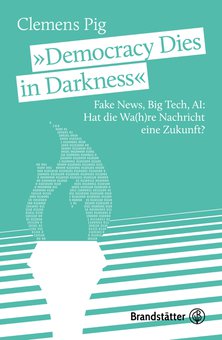How AI Changes the (Media) World
A Review of the i2s Future Lab at the St. Pölten UAS

ChatGPT, Siri & co. are steadily shaping and changing our world – but not always for the better: The dissemination of fake news has reached an entirely new level and poses new challenges in terms of ensuring journalistic quality. At the 4th i2s Future Lab hosted by the St. Pölten University of Applied Sciences’ Institute for Innovation Systems (i2s) and Center for Artificial Intelligence, experts from the fields of media and science discussed the new challenges and opportunities for “trusted content” brought about by the digitalisation.
Core Task: Filtering Misinformation
“A responsible approach to information is becoming more and more important – not least for news agencies whose core task has always been to filter out misinformation and ensure the adherence to facts. However, even these agencies face new risks and chances due to new technologies and journalistic practices”, explains Tassilo Pellegrini, Co-Head of the Institute for Innovation Systems at the St. Pölten UAS, who moderated the discussion.
News Agencies of the Future
APA CEO Clemens Pig presented his recently published book “Democracy Dies in Darkness” that addresses the future of news. He outlined tomorrow’s information society and gave insights into his vision of a “European NewsTech Alliance” where reliable information in the form of “trusted content” provides the food for trustworthy AI applications.
“This vision is already taking shape: The eleven independent European news agencies are already uploading their contents to a protected, secure platform where they train artificial intelligence”, said Pig.
 "Democracy Dies in Darkness" by Clemens Pig. Credit: Patrick Nell (vektorama.city)
"Democracy Dies in Darkness" by Clemens Pig. Credit: Patrick Nell (vektorama.city)
Displacement of High-Quality Journalism
According to media governance expert Florian Saurwein from the University of Zurich, it is the undermining of quality journalism by social media, alternative distribution channels, and a lack of quality assurance measures that poses the main threat. “As the hurdles for the publication of information become lower, the risks caused by the dissemination of disinformation, cheap content, and scandalisation increase. This means that quality journalism – which should by rights be a corrective institution – is progressively coming under economic pressure”, adds Saurwein.
Fact Checking Gains in Importance
Although it has always been the task of journalism to repeatedly check assertions for their truthfulness and factual content, these methods are now more important than ever under the current conditions. However, the technology can offer only limited relief here, especially since factuality continues to be highly manual despite the digitalisation. “Crises and uncertainties accompanying, let’s say, climate change provide excellent fuel for fake news campaigns. It is about time that media agencies, science, and regulatory authorities make a joint effort to stay abreast of the rapid progress of new technologies in the production of fake news”, states Valerie Schmid, journalist of APA fact check.
About the i2s Future Lab
The i2s Future Lab of the St. Pölten UAS’ Institute for Innovation Systems (i2s) sees itself as a networking and discussion platform for experts and opinion leaders at the interface of greening and digitalisation.

FH-Prof. Mag. Dr. Tassilo Pellegrini
Head of Research InstituteInstitute for Innovation Systems Department of Digital Business and Innovation